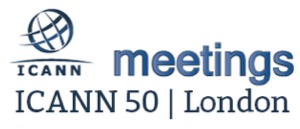 Are you planning to attend the ICANN 50 meeting in London in June? If so, would you like to share your experience with deploying DNSSEC? As noted below, we are seeking proposals for presentations to be given during the DNSSEC Workshop that will happen on Wednesday, June 25, 2014, during the ICANN week.
Are you planning to attend the ICANN 50 meeting in London in June? If so, would you like to share your experience with deploying DNSSEC? As noted below, we are seeking proposals for presentations to be given during the DNSSEC Workshop that will happen on Wednesday, June 25, 2014, during the ICANN week.
The full list of topic areas for which we are seeking proposals is included below. If you have an idea for a presentation, please send a brief (1-2 sentence) description of your proposed presentation to dnssec-london at shinkuro.com as soon as possible – but no later than by Friday, 09 May 2014. You can send an idea now if you would like… even if you have an idea you are not sure about, you are welcome to send it in and ask if it is appropriate. These are great sessions and the agenda tends to fill up pretty quickly, so if you want to be included please do send in a proposal as soon as possible!
Thanks,
Dan
Call for Participation — ICANN DNSSEC Workshop 25 June 2014
The DNSSEC Deployment Initiative and the Internet Society Deploy360 Programme, in cooperation with the ICANN Security and Stability Advisory Committee (SSAC), are planning a DNSSEC Workshop at the ICANN meeting in London on 25 June 2014. The DNSSEC Workshop has been a part of ICANN meetings for several years and has provided a forum for both experienced and new people to meet, present and discuss current and future DNSSEC deployments. For reference, the most recent session was held at the ICANN meeting in Singapore on 26 March 2014. The presentations and transcripts are available at: http://singapore49.icann.org/en/schedule/wed-dnssec.
We are seeking presentations on the following topics:
1. DNSSEC Activities in the European region:
For this panel we are seeking participation from those who have been involved in DNSSEC deployment in the European region and also from those who have not deployed DNSSEC but who have a keen interest in the challenges and benefits of deployment. In particular, we will consider the following questions: What can DNSSEC do for you? What doesn’t it do? What are the internal tradeoffs to implementing DNSSEC?
2. The Operational Realities of Running DNSSEC:
Now that DNSSEC has become an operational norm for many registries, registrars, and ISPs, what have we learned about how we manage DNSSEC? What is the best practice around key rollovers? How often do you review your disaster recovery procedures? Is there operational familiarity within your customer support teams? What operational statistics have we gathered about DNSSEC? Are there experiences being documented in the form of best practices, or something similar, for transfer of signed zones?
3. DNSSEC Automation:
For DNSSEC to reach massive deployment levels it is clear that a higher level of automation is required than is currently available. Topics for which we would like to see presentations include:
- What tools, systems and services are available to help automate DNSSEC key management?
- Can you provide an analysis of current tools/services and identify gaps?
- Where in the various pieces that make up DNSSEC signing and validation are the best opportunities for automation?
- What are the costs and benefits of different approaches to automation?
4. When Unexpected DNSSEC Events Occur:
What have we learned from some of the operational outages that we have seen over the past 18 months? Are there lessons that we can pass on to those just about to implement DNSSEC? How do you manage dissemination of information about the outage? What have you learned about communications planning? Do you have a route to ISPs and registrars? How do you liaise with your CERT community?
5. DANE and DNSSEC Applications:
The DNS-based Authentication of Named Entitites (DANE) protocol is an exciting development where DNSSEC can be used to provide a strong additional trust layer for traditional SSL/TLS certificates. There is strong interest for DANE usage within web transactions as well as for securing email and Voice-over-IP (VoIP). We are seeking presentations on topics such as:
- What are some of the new and innovative uses of DANE and other DNSSEC applications in new areas or industries?
- What tools and services are now available that can support DANE usage?
- How soon could DANE and other DNSSEC applications become a deployable reality?
- How can the industry used DANE and other DNSSEC applications as a mechanism for creating a more secure Internet?
We would be particularly interested in any live demonstrations of DNSSEC / DANE applications and services. For example, a demonstration of the actual process of setting up a site with a certificate stored in a TLSA record that correctly validates would be welcome. Demonstrations of new tools that make the setup of DNSSEC or DANE more automated would also be welcome.
6. DNSSEC and DANE In The Enterprise:
Similar to ISPs, enterprises can play a critical role in both providing DNSSEC validation to their internal networks and also through signing of the enterprises’s own domains. We are seeking presentations from enterprises who have implemented DNSSEC on either or both validation and signing and can address questions such as:
- What are the benefits to enterprises of rolling out DNSSEC validation? And how do they do so?
- What are the challenges to deployment for these organizations and how could DANE and other DNSSEC applications address those challenges?
- How should an enterprise best prepare its IT staff and network to implement DNSSEC?
- What tools and systems are available to assist enterprises in the deployment of DNSSEC?
- How can the DANE protocol be used within an enterprise to bring a higher level of security to transactions using SSL/TLS certificates?
7. Guidance for Registrars in Supporting DNSSEC:
The 2013 Registrar Accreditation Agreement (RAA) for Registrars and Resellers requires the support of DNSSEC beginning on January 1, 2014. We are seeking presentations discussing:
- What are the specific technical requirements of the RAA and how can registrars meet those requirements?
- What tools and systems are available for registrars that include DNSSEC support?
- What information do registrars need to provide to resellers and ultimately customers?
We are particularly interested in hearing from registrars who have signed the 2013 RAA and have either already implemented DNSSEC support or have a plan for doing so.
8. Implementing DNSSEC Validation At Internet Service Providers (ISPs):
Internet Service Providers (ISPs) play a critical role by enabling DNSSEC validation for the caching DNS resolvers used by their customers. We have now seen massive rollouts of DNSSEC validation within large North American ISPs and at ISPs around the world. We are interested in presentations on topics such as:
- What does an ISP need to do to prepare its network for implementing DNSSEC validation?
- How does an ISP need to prepare its support staff and technical staff for the rollout of DNSSEC validation?
- What measurements are available about the degree of DNSSEC validation currently deployed?
- What tools are available to help an ISP deploy DNSSEC validation?
- What are the practical server-sizing impacts of enabling DNSSEC validation on ISP DNS Resolvers (ex. cost, memory, cpu, bandwidth, technical support, etc.)?
9. APIs Between the Registrars and DNS Hosting Operators:
One specific area that has been identified as needing focus is the communication between registrars and DNS hosting operators, specifically when these functions are provided by different entities. Right now the communication, such as the transfer of a DS record, occurs primarily by way of the domain name holder copying and pasting information from one web interface to another. How can this be automated? We would welcome presentations by either registrars or DNS hosting operators who have implemented APIs for the communication of DNSSEC information – or from people with ideas around how such APIs could be constructed.
10. Panel Discussion/Demonstrations on Hardware Security Modules (HSMs):
HSMs are a key element in DNSSEC deployment, particularly in maintaining the security of the Zone Signing Key (ZSK). We are interested in demonstrations of HSMs as well as presentations on HSM challenges and benefits.
11. Preparing for Root Key Rollover
For this topic we are seeking input on issues relating to root key rollover. In particular, we are seeking comments from vendors, ISPs, and the community that will be affected by distribution of new root keys.
In addition, we welcome suggestions for additional topics.
If you are interested in participating, please send a brief (1-2 sentence) description of your proposed presentation to dnssec-london at shinkuro.com by Friday, 09 May 2014
We hope that you can join us.
Thank you,
Julie Hedlund
On behalf of the DNSSEC Workshop Program Committee:
- Steve Crocker, Shinkuro
- Mark Elkins, DNS/ZACR
- Cath Goulding, Nominet UK
- Jean Robert Hountomey, AfricaCERT
- Jacques Latour, .CA
- Xiaodong Lee, CNNIC
- Luciano Minuchin, NIC.AR
- Russ Mundy, Sparta/Parsons
- Ondřej Surý, CZ.NIC
- Yoshiro Yoneya, JPRS
- Dan York, Internet Society
